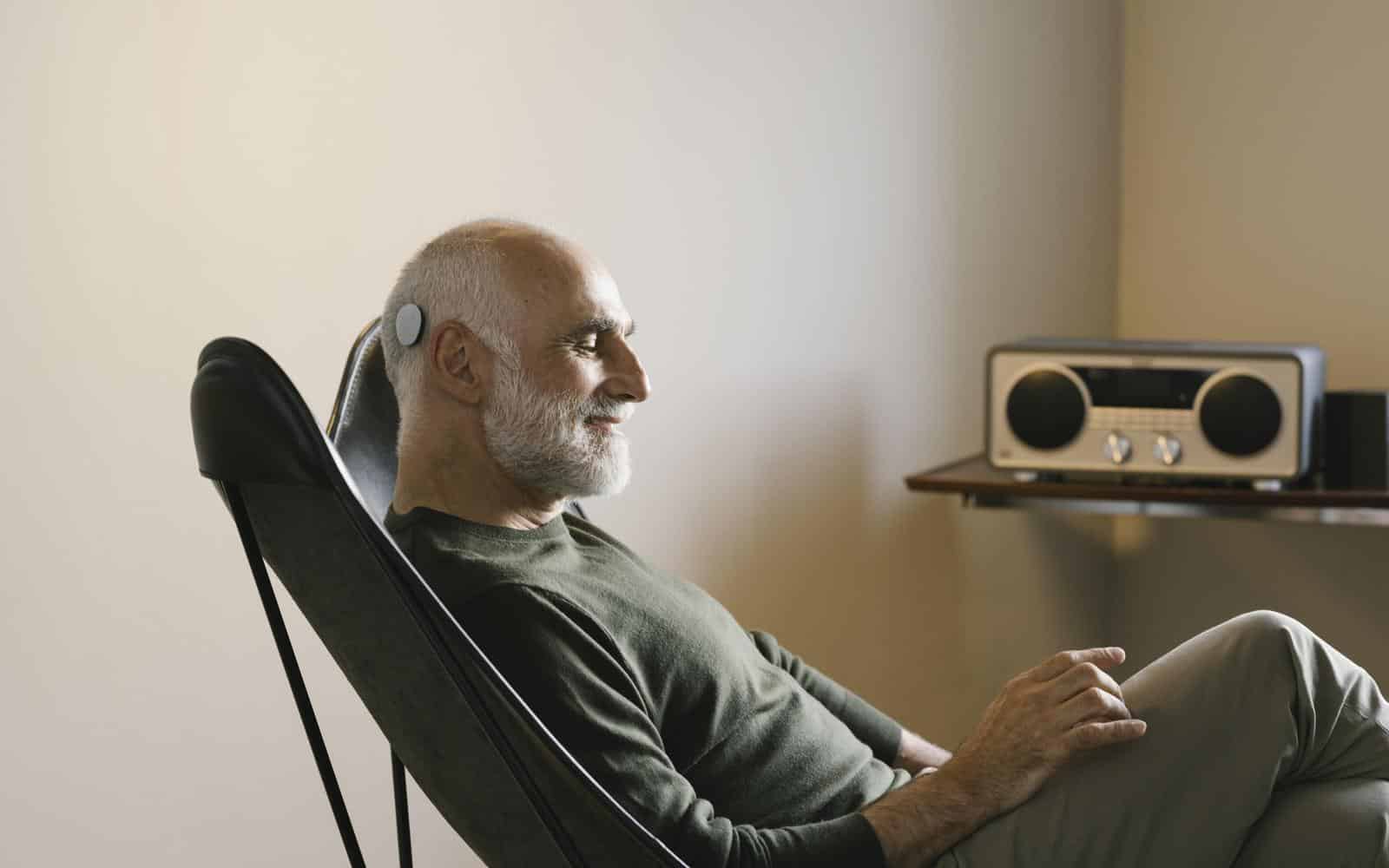
MED-EL
Published Aug 21, 2024
3 Tips for Managing Listening Fatigue
Listening fatigue is a common experience for hearing aid and hearing implant users. It occurs when it’s necessary to listen to speech for long periods in difficult listening situations: background noise, echo, multiple people talking at the same time, a lack of lip-reading cues. Listening in such environments requires more effort because the listener has to fill in the gaps in the auditory message that they miss due to the noise. This increased listening effort can lead to listening fatigue.

Recently, we were asked how hearing implant recipients can manage listening fatigue—without removing their audio processors. Here are three suggestions:
1. Use Assistive Listening Devices
Try an assistive listening device such as AudioLink. This will help reduce your listening effort by directing the speech or sound you are listening to directly to your audio processors, overcoming the effects of background noise and distance. AudioLink can be used to stream sound from your phone, TV, or other media devices.
It can also be used as a remote microphone: Place AudioLink in front of the person speaking at face-to-face meetings or lectures. Then their speech signal will be sent directly to your audio processor, and listening will require less effort.
2. Reduce Background Noise
Reduce noise in your home or workplace where possible to hear speech and other sounds more easily. Add rugs to your home in key areas to reduce noise from dragging chairs, footsteps, and toys. Turn the TV or radio off when you are not actively listening to them so you don’t have to communicate over the noise.
Take a closer look at your work environment and identify noise sources. Could you request your desk be moved away from sources of noise, such as the photocopier or the hallway? Could you add rugs to reduce noise and echo? Making these adjustments will make it easier for everyone to communicate.
3. Take Listening Breaks
Take breaks regularly. Take time out from noisy places, when needed. This might mean moving to a quieter space for your lunch break or turning the radio off for your drive home. By giving your ears and your brain a break, you will be less fatigued at the end of a long day. When listening fatigue gets to be too much, you may be tempted to take off your audio processors.
But it’s important to wear them as much as possible. By reducing causes of listening fatigue throughout your day, you will be able to wear and benefit from your audio processors longer. And you’ll be less exhausted when you head to sleep at the end of a busy day.
What do you do to avoid listening fatigue? Let us know your tips in the comments below.
References

MED-EL
Was this article helpful?
Thanks for your feedback.
Sign up for newsletter below for more.
Thanks for your feedback.
Please leave your message below.
Thanks for your message. We will reply as soon as possible.
Send us a message
Field is required
John Doe
Field is required
name@mail.com
Field is required
What do you think?
© MED-EL Medical Electronics. All rights reserved. The content on this website is for general informational purposes only and should not be taken as medical advice. Contact your doctor or hearing specialist to learn what type of hearing solution suits your specific needs. Not all products, features, or indications are approved in all countries.
Pochi González
August 22, 2024
Muchas gracias, por toda la información que mandan , tengo 2 semanas de Implante Coclear. Todo es nuevo para mí
Susanah Willard
October 04, 2024
The first thing I noticed after having my implant turned on was that I could hear birdsongs and people's keychains, and to my annoyance, bags of popcorn and chips rattling when they were eating snacks! I can even sometimes hear people's footsteps. I like to turn on music and read at the same time. But the single most challenging for me to hear is traffic noise! I always have to turn my implant down when I go outside so I don't have pain when I hear large trucks and ambulances. Then I often forget that the implant is turned down. But even when the implant is turned down I still can hear better with the implant than I ever did with my hearing aid. I will never go back to using a hearing aid.
MED-EL
October 04, 2024
Thanks so much for sharing your feedback with us, Susanah. We wish you all the best on your hearing journey! Kind regards, Gordana

MED-EL

MED-EL
.png)



Conversation
2 Comments